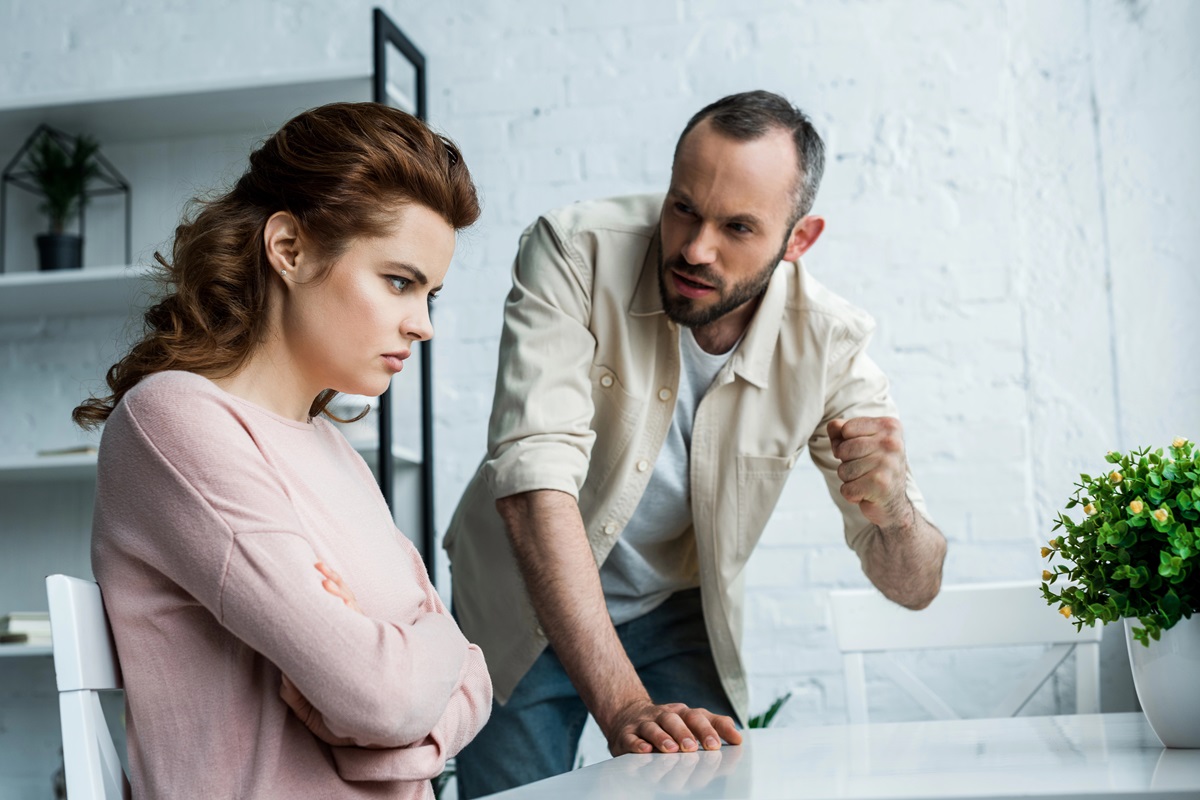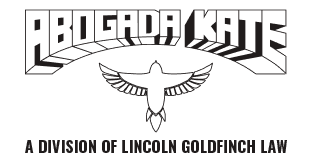A VAWA Lawyer Assists Survivors Of Domestic Violence
Many immigrant survivors of domestic violence feel trapped, fearing that leaving their abuser could mean losing their status. However, there is hope in the Violence Against Women Act (VAWA). A VAWA lawyer can help you understand this provision and assist you in achieving safety and independence.
Here, you will explore the benefits of a lawyer’s representation and detail the steps in filing a VAWA self-petition. Additionally, learn about the aspects surrounding the application and how a lawyer can help streamline the process and prioritize your safety.

A VAWA Lawyer Secures Justice & Safety
A VAWA immigration lawyer offers guidance and support, leading you through the application process and securing justice and protection. They help complete and submit all forms on time, reducing the risk of errors that could delay your case.
Proper documentation is essential for a successful VAWA petition. A competent lawyer will help you gather and organize all necessary documents, such as proof of abuse, relationship, and residence. This thorough preparation strengthens your case and increases the likelihood of approval.
VAWA eligibility can be complex. An immigration attorney will make you understand if you qualify and what evidence is needed. They will assess your situation and guide you on the specific criteria you must meet, ensuring you know the process ahead. Additionally, they will explain each form required for your application, particularly the crucial Form I-360.
Overview Of Form I-360 VAWA Petitions
Form I-360 is the self-petition for immigrant survivors of domestic violence. This form enables eligible individuals to apply for lawful permanent residency without their abuser’s knowledge or consent. It is a critical component of the VAWA process and must be completed accurately to ensure a successful outcome.
A VAWA lawyer can guide you through its intricacies, helping you understand each section and the required information. Completing Form I-360 is vital; a lawyer’s knowledge can prevent mistakes that might delay or deny your application. Furthermore, they can help you understand the aspects of this law.
Immigration Relief Of VAWA-Self Petitions
Navigating immigration relief can be a lifeline for survivors of domestic violence seeking protection and legal status in the U.S. By understanding the elements of VAWA, survivors can prepare their petitions and increase their chances of successfully obtaining legal protections.
Who Qualifies For VAWA?
VAWA protects individuals who have suffered from battery or extreme cruelty at the hands of certain family members. To qualify for it, you must demonstrate that you have been a victim of such abuse and that your abuser holds a specific legal status.
The Violence Against Women Act covers a range of relationships to ensure broad protection for those in need, such as:
- Current Or Former Spouse: If your U.S. citizen or lawful permanent resident (LPR) spouse subjected you to battery or extreme cruelty.
- Parent: If you are a parent who has been abused by your U.S. citizen or LPR child.
- Child: If you are a child who has been abused by your U.S. citizen or LPR parent.
By offering protection to victims in these specific categories, VAWA aims to provide a comprehensive support system for those facing domestic violence. This framework ensures survivors’ access to the legal and social resources necessary for their safety and recovery.
What Evidence Do You Need?
Building a strong VAWA petition requires gathering comprehensive evidence to support your claims of abuse and eligibility. Proper documentation is crucial for demonstrating the legitimacy of your case to the United States Citizenship and Immigration Services (USCIS). You need to provide:
- Proof Of Relationship: Marriage certificates, birth certificates, or other documents showing your relationship to the abuser.
- Abuser’s Status: Documentation proving the abuser’s U.S. citizenship or LPR status.
- Proof Of Abuse: Police reports, medical records, or affidavits from witnesses that document the abuse.
- Good Moral Character: Evidence such as police clearance certificates or affidavits demonstrating your good moral character.
- Proof Of Residence: Documents like leases, utility bills, or affidavits showing you lived with the abuser.
These additional pieces of evidence can paint a fuller picture of your situation, helping USCIS understand the severity and impact of the abuse. By providing a comprehensive and well-documented petition, you demonstrate the authenticity and urgency of your need for protection under VAWA.
What Happens In The Process?
Understanding the steps is an essential start for the VAWA process. Here are the typical phases to expect during the self-petition process:
- Submitting Form I-360: This form allows you to apply for an immigration status without the abuser’s knowledge or consent. Additionally, you must submit evidence supporting your eligibility.
- Biometrics Appointment: This involves providing fingerprints, photographs, and signatures for background checks.
- USCIS Review: This process involves evaluating all your submitted evidence to determine if you meet the eligibility criteria.
- Decision: You will receive a notification whether your self-petition has been approved or denied or if additional evidence is required.
Each phase is critical, and being well-prepared can improve your chances. Knowing what to expect can help you better manage the process and stay secure as you wait.
What To Expect After Submission?
After submitting your VAWA petition, several protections and steps ensure your safety and stability while processing your application. Knowing these steps can help you navigate this critical period more securely.
Firstly, you will benefit from safe address and confidentiality protections. USCIS takes measures to keep your information confidential to protect you from the abuser. It means your abuser cannot access your application details, contact information, and other sensitive data.
One of the initial steps after submission is the prima facie determination. This preliminary review by USCIS determines whether your application meets the minimum eligibility criteria. If it does, it will grant you public benefits, such as working privileges, while your application is pending.
You can also apply for employment authorization by submitting Form I-765. It allows you to work legally in the U.S. while your VAWA petition is being processed. Work authorization can be crucial for your financial independence and stability, helping you support yourself and any dependents during this time.
Additionally, you may apply for a travel document using Form I-131. This document permits you to leave and re-enter the U.S. while your VAWA application is pending. A travel document can provide flexibility and peace of mind, especially if you need to travel for personal or family reasons.
These benefits can help you start your life independently during the application process. However, this is just the start. If your petition gets approved, you can further receive the support and security you need in the United States.
Benefits From An Approved VAWA Petition
One of the primary benefits of an approved VAWA petition is the pathway it creates toward legal residency in the U.S. Once your petition is approved, you are now eligible to apply for a Green Card. While going through the AOS (Adjustment of Status), you can lawfully live and work in the United States.
Moreover, an approved petition empowers you to live independently without the fear of the abuser using your immigration status as a means of control. With VAWA protections, you can make decisions for your life free from this manipulation. This independence is crucial for your safety and well-being, allowing you to break free from the cycle of abuse and build a life based on your own choices.
Understanding the significant benefits of an approved VAWA petition underscores the importance of efficiency and accuracy. The question is, how can a lawyer help you streamline the VAWA process?
A VAWA Lawyer Streamlines The Process
The legal intricacies and detailed requirements of the VAWA petition can pose significant challenges. Partnering with an experienced VAWA attorney can help you streamline the process, ensuring your petition is meticulously prepared and effectively presented.
Expediting Your Application
An attorney can expedite your application process by ensuring all submissions are timely and accurate. Lawyers have in-depth knowledge of the VAWA requirements and procedures. Therefore, they know the critical deadlines and the practical practices for submitting applications, which helps avoid unnecessary delays.
This prompt action is crucial in sensitive cases where survivors urgently need protection and legal status.
Avoiding Common Mistakes
Legal guidance is invaluable in helping you avoid mistakes that could delay or deny your petition. The VAWA process involves numerous forms and a significant amount of documentation. An attorney meticulously reviews your application to ensure that everything is in order.
Attorneys ensure that they meet all legal criteria by double-checking the details and verifying the accuracy of the information provided.
Providing Emotional Support & Stability
Going through the VAWA application process can be emotionally taxing. An attorney offers legal experience and provides much-needed emotional support and stability during this challenging time. This supportive relationship can help you remain focused and hopeful while securing legal protection and residency.
An attorney’s meticulous approach can make a significant difference, helping you through the VAWA process with confidence and efficiency. By leveraging their experience and skills, you can increase your chances of securing the protection and relief needed to build a safer, more stable future.
Abogada Kate Prioritizes Your Safety
Dedicated legal support is crucial for ensuring your safety and securing the relief you need in the VAWA process. At Abogada Kate, we understand the complexities and emotional challenges of seeking protection under this provision. Our team commits to providing compassionate and personalized legal assistance tailored to your unique situation.
We offer solid legal representation, meticulously handling every aspect of your case. From the start to the final submission of your petition, we provide clear and empathetic advice. We aim to alleviate your anxiety and confusion associated with the petition, allowing you to focus on your well-being and recovery.
Whether gathering the necessary evidence or responding to USCIS, we stand by your side to ensure you receive the protection and relief you need. Our compassionate approach makes us a trusted ally for immigrant survivors of domestic violence. We dedicate ourselves to helping you build a safer and more stable future.
Summary
A VAWA lawyer is essential for immigrant survivors of domestic violence seeking protection and legal residency. They provide crucial assistance in understanding eligibility, completing necessary forms, and preparing documentation. Further, by supporting you in the VAWA self-petition, they help to deliver justice and keep you safe.
The VAWA process involves several steps, including submitting Form I-360, attending a biometrics appointment, and awaiting USCIS’s decision. Legal representation can streamline this process, help you avoid common mistakes, and ensure thorough documentation. With the help of a dedicated immigration lawyer like Abogada Kate, survivors can prioritize their safety and stability.

